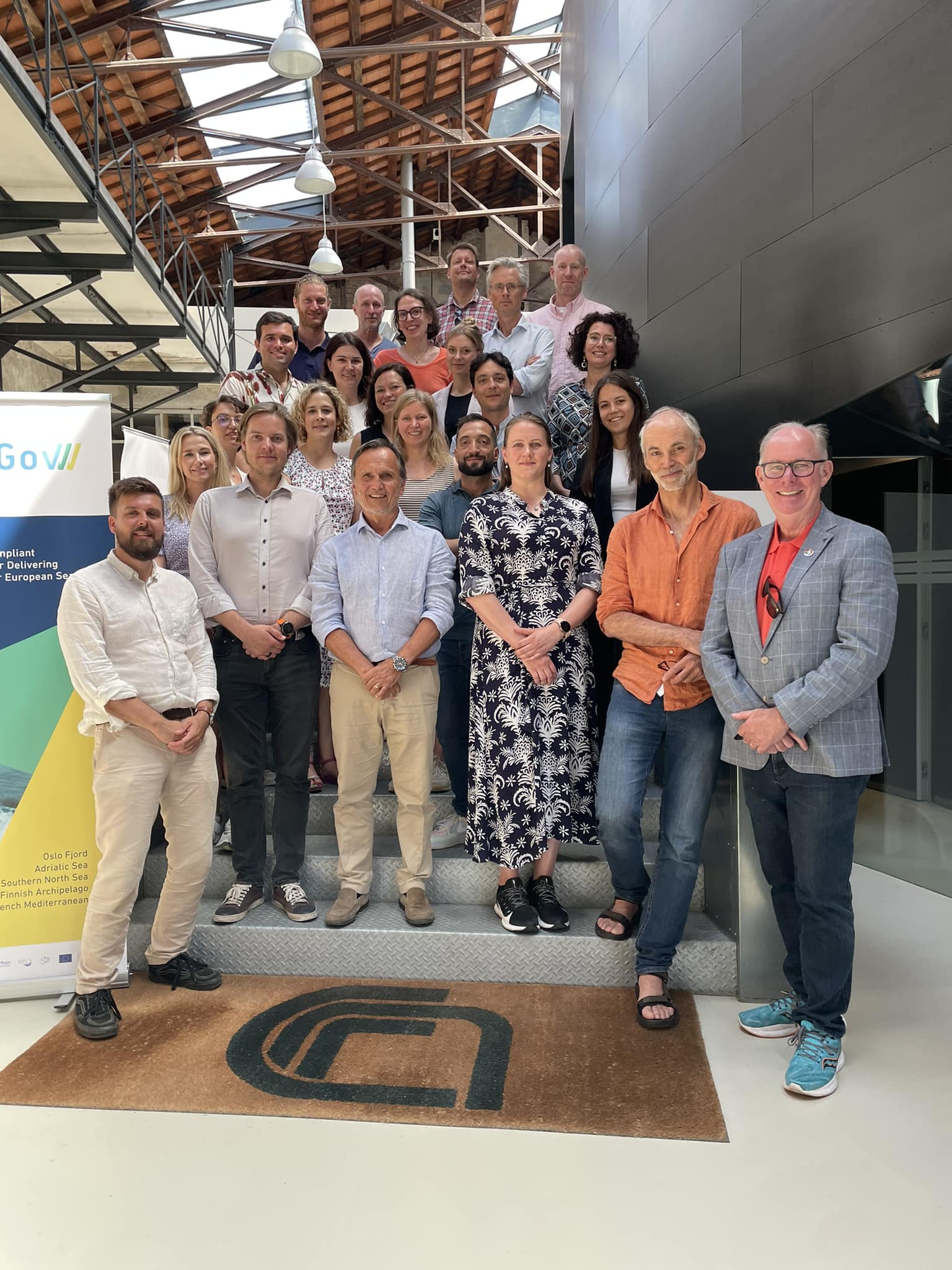The CrossGov team, composed by 7 organisations from 6 European countries, convened at the ISMAR premises in Venice, from 28 to 30 June, to bring forward dialogues on the progress done so far by the project, and to pave the road for an impactful future.
In CrossGov, the involved organisations have joined forces to enhance knowledge on how coherence and cross-compliance of marine-related policies and legislation affect the ability to realise the EU Green Deal’s goals for the protection of marine ecosystems and biodiversity, zero pollution, and nature-based climate adaptation and mitigation.
The consortium is coordinated by the Norwegian Institute for Water Research, and composed, in addition to IMSAR, by the University of Utrecht, the University of Eastern Finland, Acteon SARL, s.Pro GmbH, and the Institute for Advanced Sustainability Studies.
ISMAR is in particular responsible of developing a Science-Policy-Society Interfaces (SPSI) assessment framework for CrossGov and analysing how SPSI affect coherence and cross-compliance of present institutional landscapes. This work will lead to specific recommendations for strengthened SPSI in the marine domain that contribute to enhanced coherence and cross-compliance, to improved decision and policy-making, and to the envisioned transition towards the protection of marine ecosystems and biodiversity. Such transition is also investigated by ISMAR through an analysis of the challenges related to policy integration in the Northern Adriatic Sea, focusing on the implementation of the Water Framework Directive, the Marine Strategy Framework Directive, and the Maritime Spatial Planning Directive, their synergies and conflicts, and their coherent contribution to relevant Green Deal objectives.
The CrossGov second consortium meeting was the opportunity to showcase and discuss the objectives reached during the first year of the project, and to align on approaches and tools to be used.
The Green Deal objectives were reviewed as in connection with coherence & cross-compliance of marine-related policies, and the role of science-policy-society interfaces, whose analytical methods were broadly presented and discussed by all participants, before entering dedicated training sessions.
Reaching out through social media was presented and discussed by all partners in a participated environment, sharing common visions, detailed roadmaps, and prioritisation of outcomes.
The meeting was also the opportunity, through a dedicated session and thanks to the participation of key stakeholders (i.e. District Water Authorities and coastal Regions) for sharing and discussing experiences on the Northern Adriatic case study, in relation to water management experiences at river basin district level, and the extensive endeavours done towards the implementation of both the Marine Strategy and Maritime Spatial Planning Directives.
